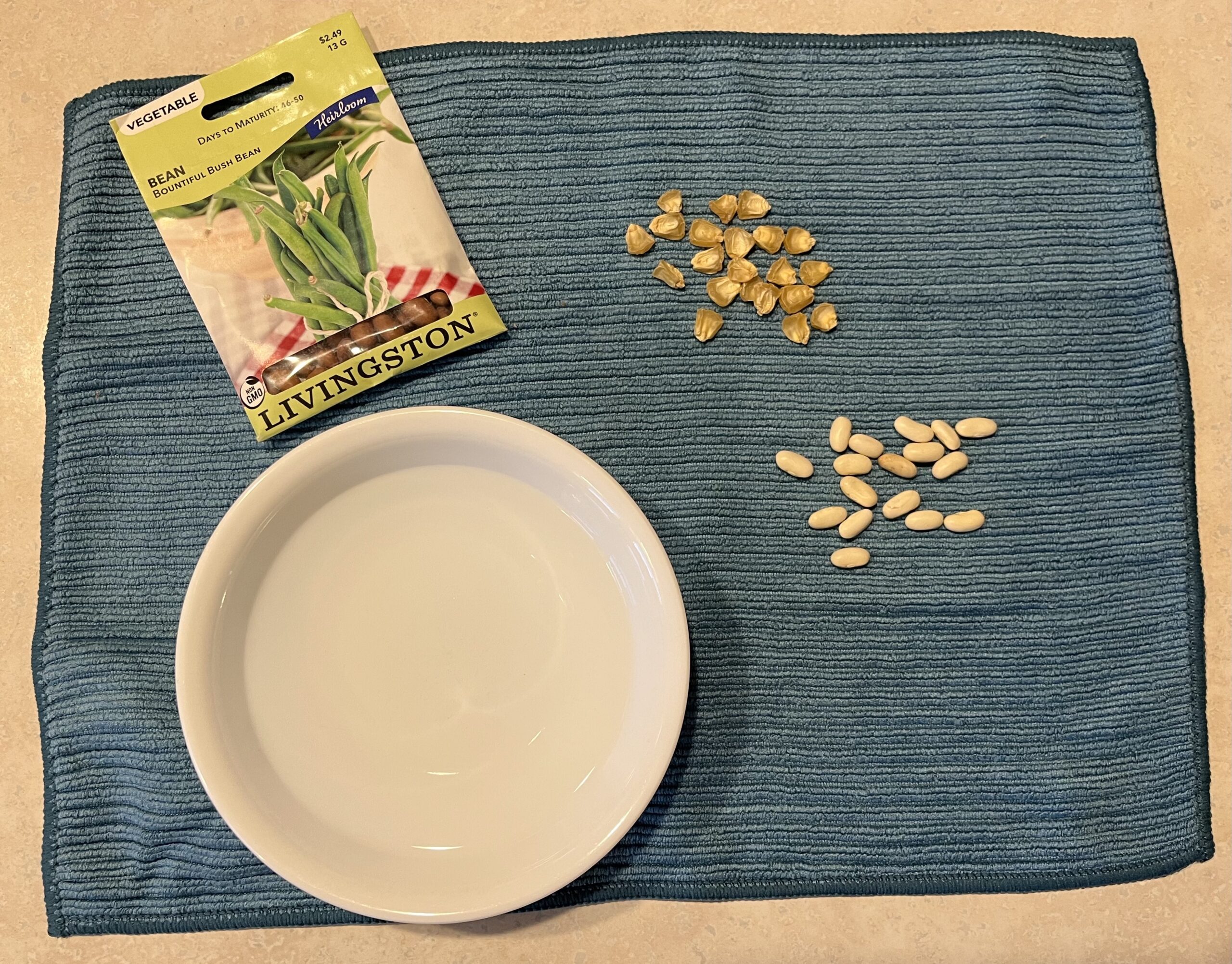The Hort Report: Presoaking vegetable seeds will speed up germination but not all can be presoaked

I pray everyone had a blessed Easter while remembering that Jesus died to save us all.
The weather is beginning to be more like spring with much-needed rain and warmer days. Hopefully, many of you have done some garden planting.
In the community garden behind the Father Buhman Center in Shelbina, Mo. carrots, beets, lettuce, spinach, peas, onions and potatoes have been planted.
We put a potting soil mix into the rows in the raised beds and the garden soil, then planted seed into potting soil, covering them with more potting soil, then covering the rows with regular garden soil. This will help the seed germinate faster.
In the coming days, the day and night temperatures will be warm enough to help germinate the seed, provided there is enough water.
I had someone ask about presoaking vegetable seeds. This will help speed up the germination of the seeds, but not all vegetable seeds can be presoaked.
The vegetable seeds that work the best are beans, sweet corn, cucumbers, gourds, melons, peas, pumpkins, squash, watermelon and zucchini. Let them soak until you can see them swell and start to crack open. Sometimes you can wait until you see a small root start to come out of the seed. Then plant them for 24 hours in the garden or raised beds.
You can also try to soak pepper and tomato seeds before planting them to grow as transplants.
As you soak the seeds, place them in a bowl of water and in a warm, sunny place, or you can soak in a cloth or paper towel with water. Make sure to check the seeds in a couple of days.
File off the tip of a kernel of corn to speed up water getting into the kernel to gain a few more days in germinating.
Other vegetable and flower seed types are too small or have a soft type of seed coat, so they will germinate without presoaking.
In the last Hort Report, I talked about how to check out the roots on plants you are buying to plant into your flowerbeds or garden.
The better the roots on the plants are when you are planting them, the faster the plant will start producing flowers or vegetables. If your plant has a weak root system, it will spend more time growing better roots and not growing stems, leaves, flowers and vegetables.
If you’re planting your transplants in the garden and notice their roots don’t look very good, here is something you can do to get the roots off to a great start in the garden. Get liquid fertilizer that is high in phosphorus. All new transplants need nitrogen and potassium too, and the earlier in a new plant’s life, the better.
Phosphorus is very important. I use Ferti-lome Blooming & Rooting Soluble Plant Food. It has an N-P-K ratio of 9-59-8. I call this transplant fertilizer because it is high in phosphorus.
I use a water-soluble fertilizer so it can get into the plant faster. It can be applied into the soil or on the leaves. This fertilizer helps build up all the female parts of the plant, so you will have larger blooms, flowers, fruit and vegetables. I will use this fertilizer every week, even after the plants start to produce vegetables or flowers. I used it last year until a couple of weeks before the last frost.
The only thing is I make sure the soil around the plant roots is soaked with moisture. If not, the liquid fertilizer will pass through the root zone in the soil. The more moisture in the soil, the longer the liquid fertilizer will stay in the root zone.
I appreciate all your questions in the past and look forward to them in the coming days. Thank you and keep them coming. Call me at 573-588-2040, visit me at Shelby County Implement in Shelbina, Mo., email me at sci63468@hotmail.com or contact me on Facebook at Greenwell’s Greenhouse Group.
Enjoy the great weather.

Pat Greenwell is the owner of Shelby County Implement in Shelbina, Mo. He was a high school agriculture teacher for 11 years. He has taught adult vocational agriculture since 1987. He also is a research assistant at the Truman State University Ag Department Farm.
Miss Clipping Out Stories to Save for Later?
Click the Purchase Story button below to order a print of this story. We will print it for you on matte photo paper to keep forever.

